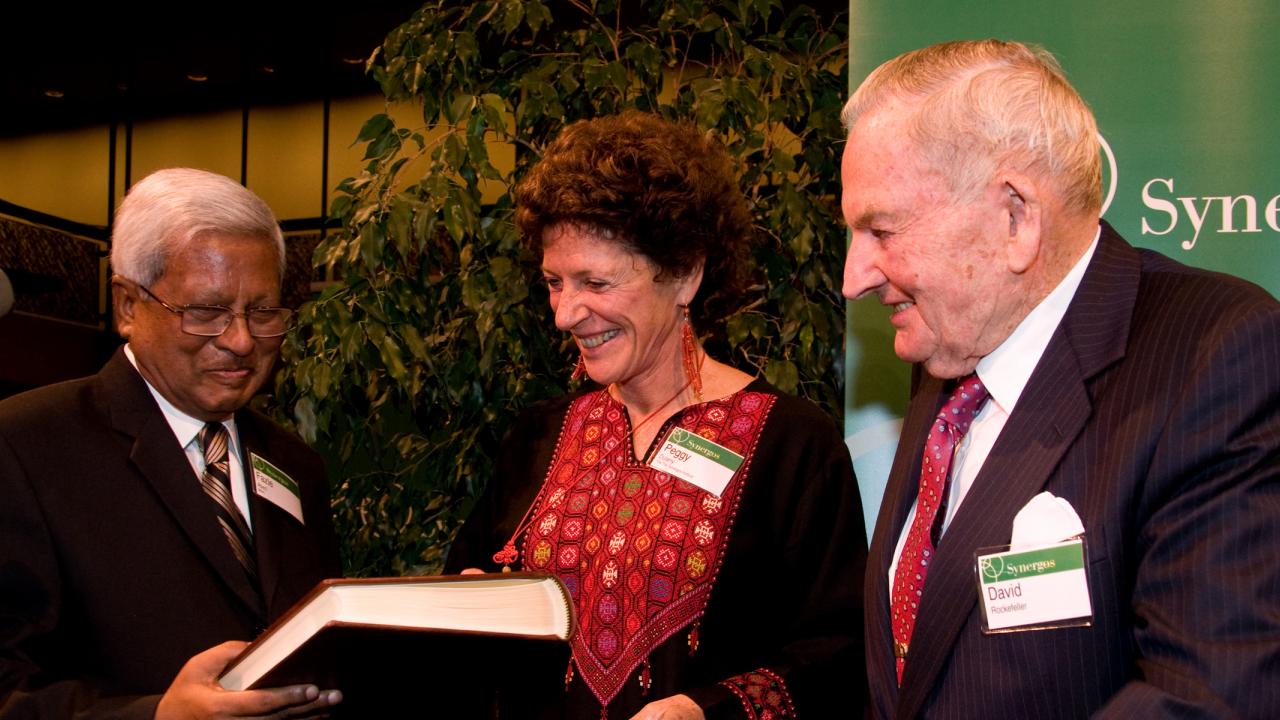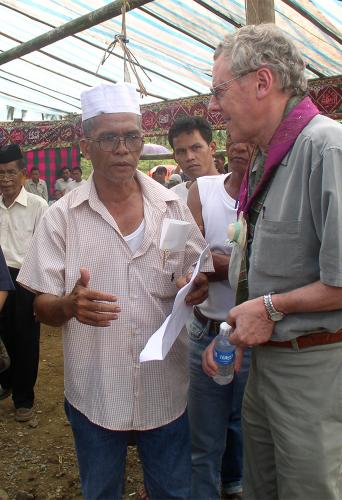
Synergos’ founder Peggy Dulany talks about the concept of bridging leadership, how she learned about it from her father David Rockefeller, and why it is so important in the world today.
Transcript
It stems from when I was 17 in Brazil, and I saw the absolute lack of connectivity between these migrants who would come from very poor rural areas to the city in Rio.
And it was favelas, squatter settlements, and they had so much energy and will to get out of poverty.
And they had creativity, and there was no possibilities for them made available by the society, by the people, or the government.
And that gave me, at that very early age, it was only an impression, it wasn’t a thought out philosophy or anything, that this is the biggest resource: the people.
And unless we make the connections to other groups, other levels, other sectors, that we’re missing half the potential for solving the problems.
It was probably ten years in the Synergos, that I realized that in order to form partnerships where you have true collaboration between groups who are class-wise, ideologically, sectorally in all ways, different.
There were certain people who stood out as having the kinds of characteristics that were willing to reach out across divides.So, we began to notice these people.
A lot of them were heads of community foundations because they had their feet at the grassroots and they had a reach.
And we began to see that certain leaderships characteristics that were very different from other types of leaders.
The key components of good bridging leadership is the ability to empathize and the ability to listen deeply.
The reason we started focusing on what we call “Bridging Leadership” is that the world is so divided. On substantive issues, on process issues, on political issues.
And, what’s needed is people who are what we call the “allies” in every sector, who have credibility with their own constituency to come out of their own constituency and interact with people are different from themselves.
When we first started thinking about breeding leadership and people were asking me, “Well, how did you get to be interested in this?”
I went back to 1980 when I perceived something the way my father worked in the world, whether it was in business or diplomacy or friendship, that I thought was important. But, I didn’t know what it was.
He was at that time writing his memoires and he told me about his strategy to learn and connect with people in new situations.
It was to get meet with one person, have a discussion, and get them to suggest other people he should meet with.
He was, in essence, learning from many people being passed from hand to hand and always reaching out to new people; curious, open, which are aspects of bridging leadership.
And, I saw how he did it. I saw both his personality, his instincts, his skill at really making people feel comfortable and talking to people of all different backgrounds and gradually drawing them in.
And, I thought “Hmm, that is something that’s needed in the world.”
I think it is something that I’ve learned from and I would really like to share that in the world.

